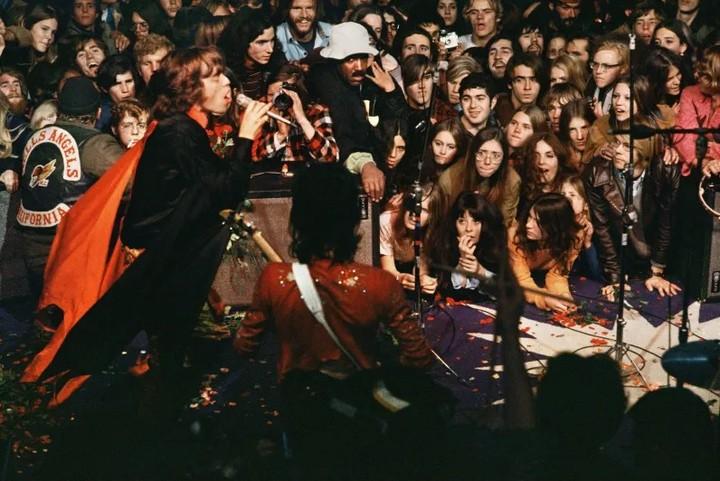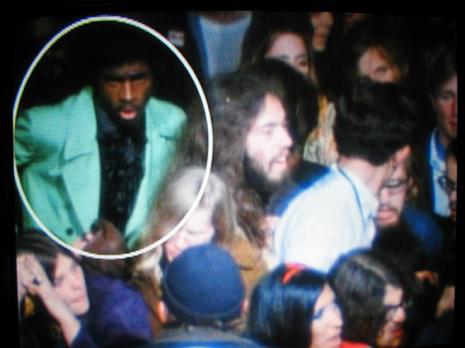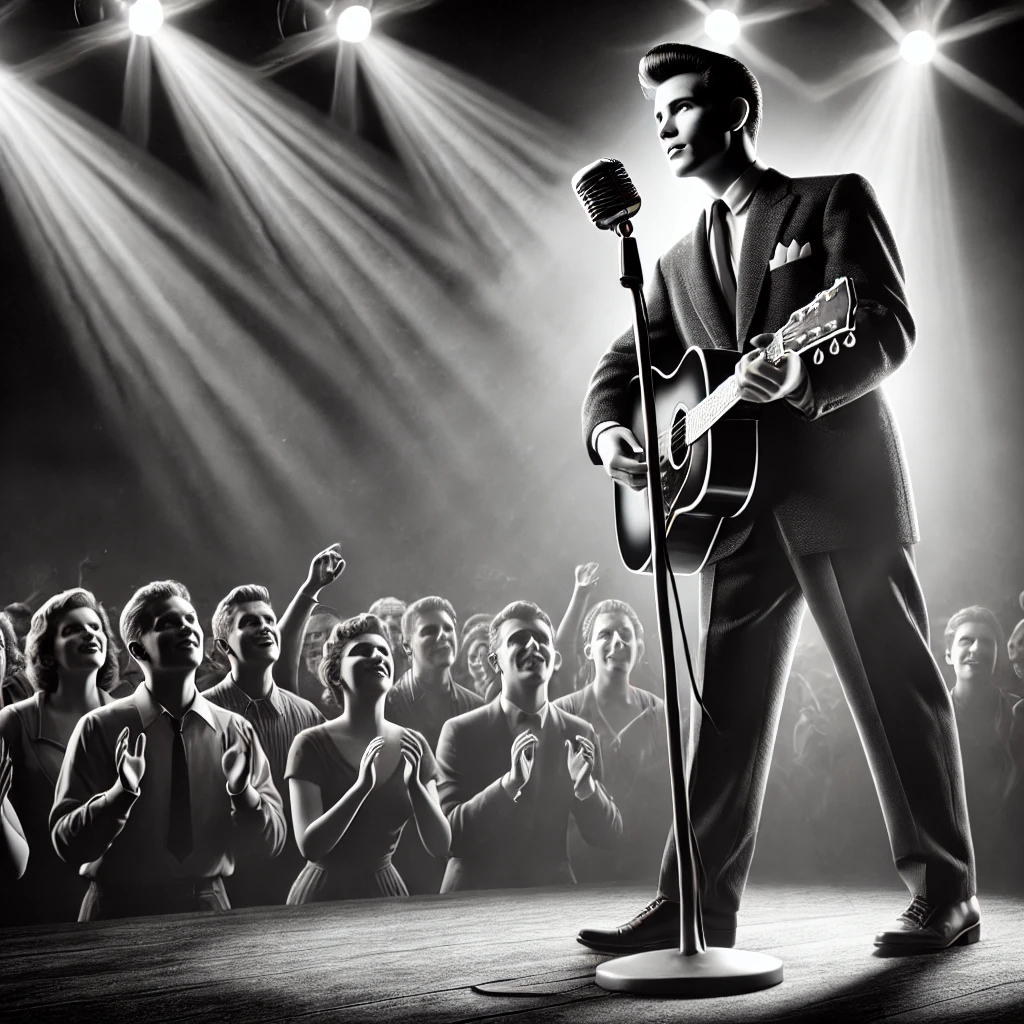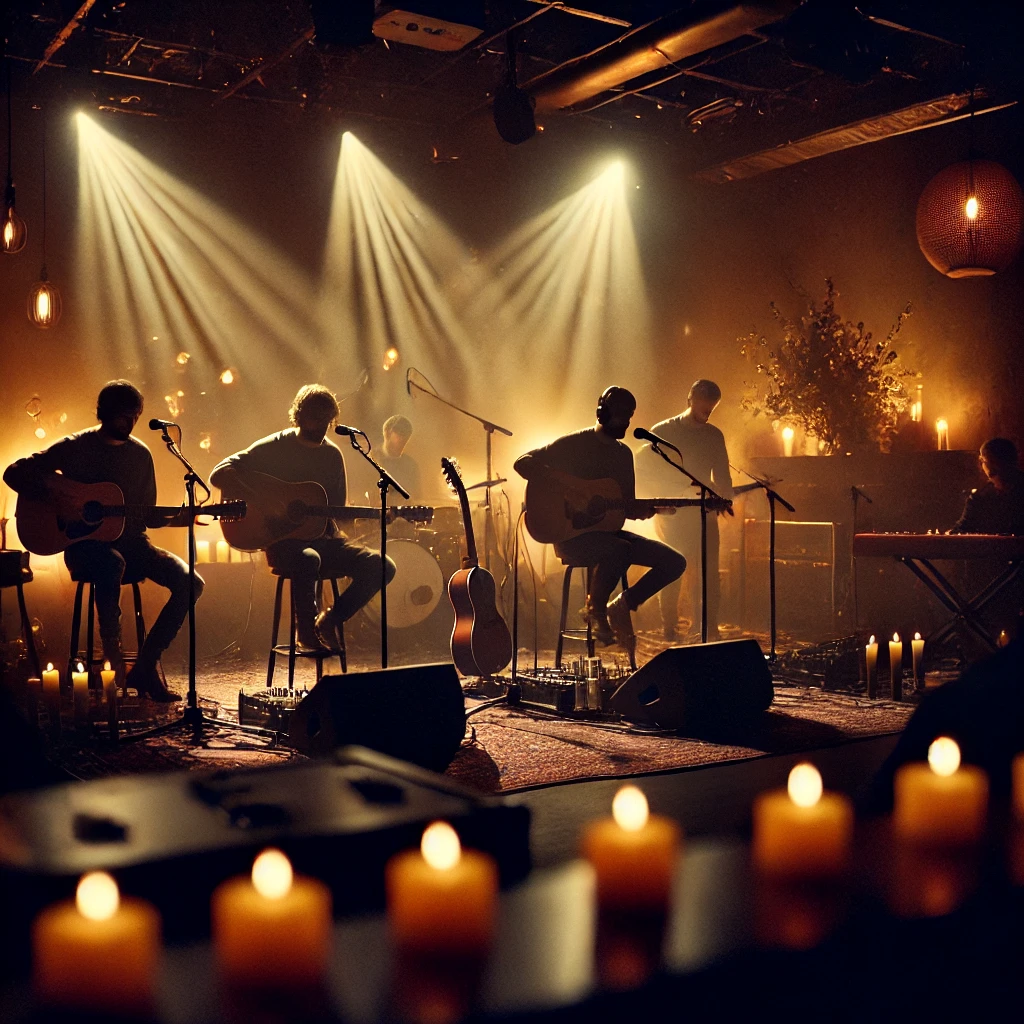In December 1969, The Rolling Stones were at the peak of their powers, but their infamous performance at Altamont Speedway in Northern California would go down in history for all the wrong reasons. Intended to be the West Coast’s answer to Woodstock, the concert instead became a symbol of chaos, violence, and the bitter end of the idealistic flower power era. What happened at Altamont? And why did it mark the death of a movement defined by peace and love?
The Altamont Free Concert: A Dream Gone Wrong
On December 6, 1969, The Rolling Stones hosted the Altamont Free Concert, a free show meant to celebrate the counterculture movement of the 1960s. The concert featured iconic acts such as Santana, Jefferson Airplane, and Crosby, Stills, Nash & Young. However, poor planning, logistical failures, and the hiring of the Hells Angels as security led to a situation that spiraled out of control.
The Hells Angels were reportedly paid with $500 worth of beer to keep order, which immediately set the tone for chaos. As tensions rose throughout the day, with fights breaking out between the Angels and audience members, the sense of impending doom became palpable. By the time The Rolling Stones took the stage, the atmosphere was already on edge.

The Rolling Stones’ Performance: From Music to Mayhem
The Stones’ set was meant to be the grand finale, but it turned into a nightmare. The band had barely started playing when the violence escalated. During their performance of “Under My Thumb,” a concertgoer, Meredith Hunter, was fatally stabbed by a Hells Angel member, right in front of the stage. The tragedy was caught on film, later immortalized in the documentary Gimme Shelter, a chilling reminder of how quickly the utopian dreams of the 1960s unraveled.
Mick Jagger’s pleas for calm were drowned out by the madness of the moment, and the event quickly descended into chaos. While the band finished their set, the shadow of what had happened loomed large over the night and the movement itself.


Altamont vs. Woodstock: The Dark Flip Side of the ’60s
Altamont was supposed to be the Woodstock of the West, but where Woodstock had represented peace, love, and harmony, Altamont came to embody the darker undercurrents of the 1960s counterculture. The contrast between the two events could not have been starker. While Woodstock is remembered as the high point of the flower power movement, Altamont, just four months later, seemed to signal its death knell.
The violence at Altamont, combined with the general atmosphere of disillusionment at the end of the decade, contributed to the growing belief that the ideals of the 1960s had been little more than a dream. In the aftermath, critics labeled the event as the moment when the peace and love ethos of the era collapsed under the weight of reality.
The End of Flower Power
The events of Altamont are often seen as the symbolic end of the flower power movement, a movement that had once promised to bring about a new age of peace and harmony. The stabbing of Meredith Hunter, the clashes between the crowd and the Hells Angels, and the general sense of chaos at the concert showed that the ideals of non-violence were, in some ways, unsustainable in the face of the realities of human nature.
Altamont represented the loss of innocence for a generation. What had started as an idyllic promise of peace, love, and communal spirit ended in violence, disillusionment, and the harsh realization that the utopian dream of the 1960s had come crashing down.


Legacy: The Rolling Stones, Altamont, and the Lessons Learned
The Altamont Free Concert remains a pivotal moment in the history of rock and roll, not just for The Rolling Stones but for the entire counterculture of the 1960s. It’s a reminder of how quickly things can spiral out of control when idealism is confronted by harsh reality. For The Rolling Stones, the concert was a sobering experience that contrasted sharply with the carefree attitude that had once defined their music.
In the end, Altamont is remembered as a tragic but defining moment—one that marked the end of the flower power era and the beginning of a more jaded, realistic view of the world. It’s a night that will forever be tied to the legacy of the 1960s and a cautionary tale for generations to come.
Sources:


